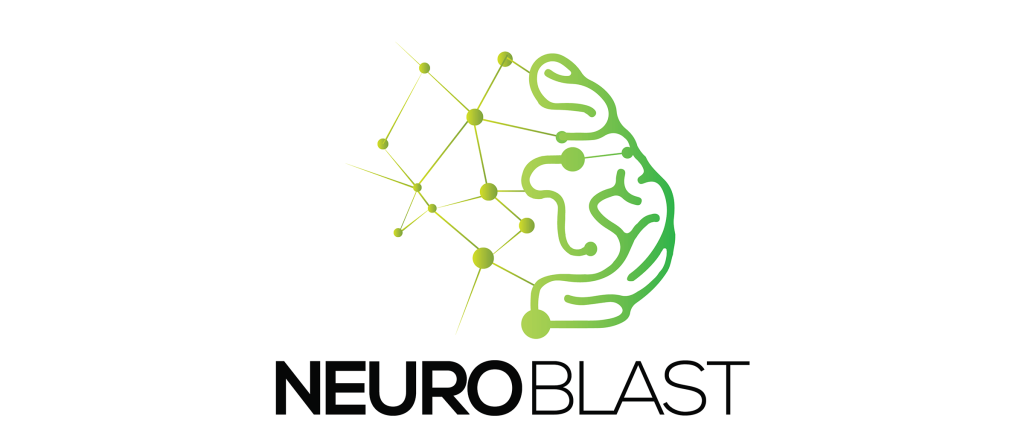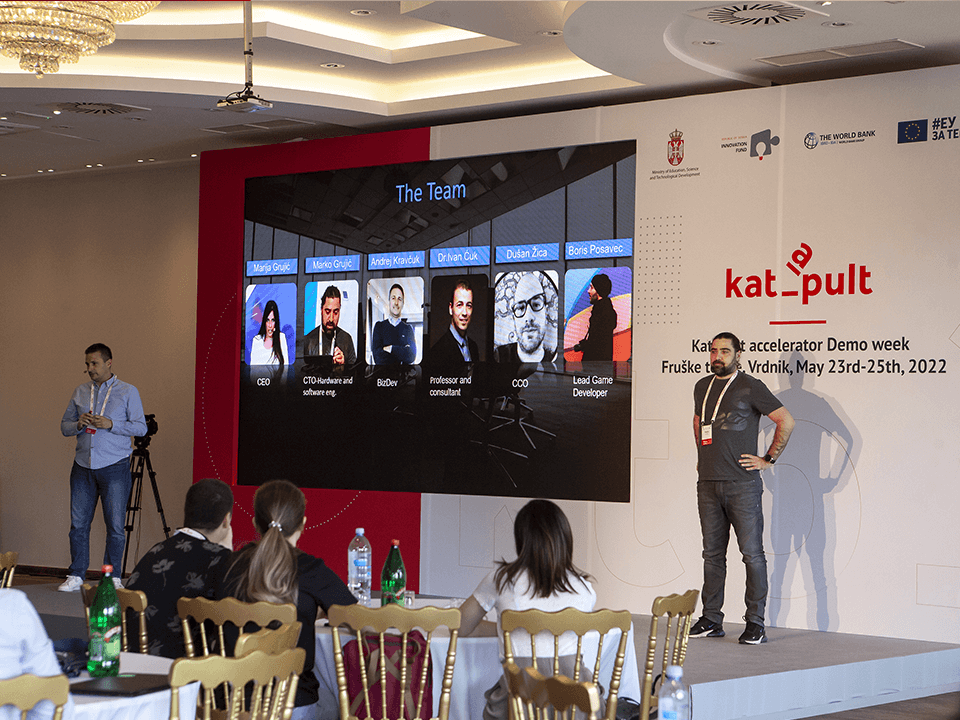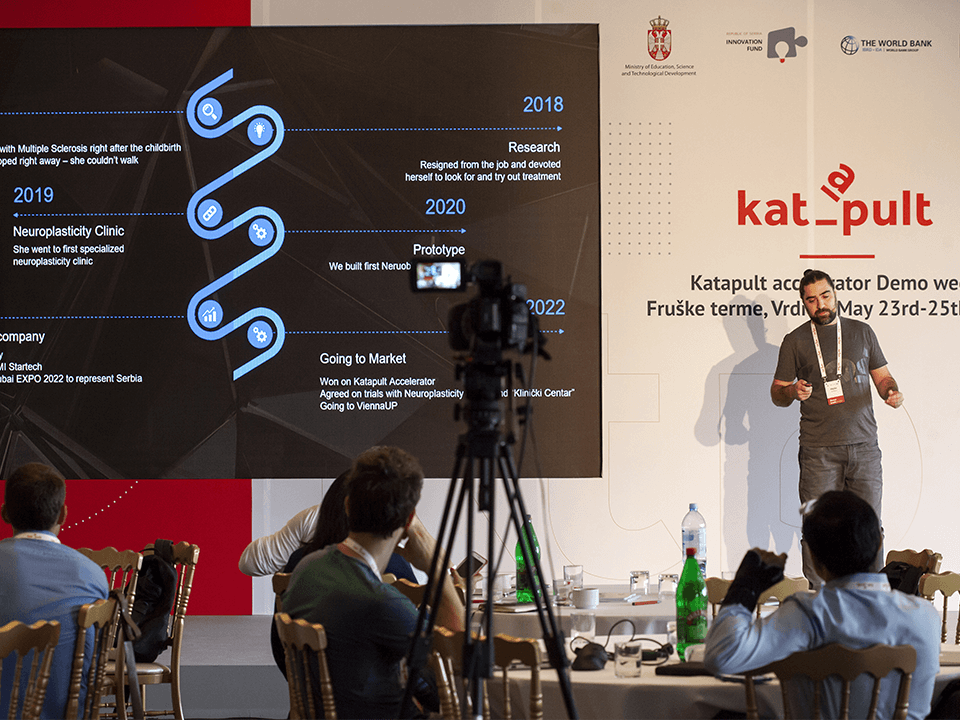
11/10/2022
NEUROBLAST: IT подршка за нервни систем
Тим стартапа NeuroBlast развио је иновативни вишесензорски уређај који помаже деци и одраслима у пострехабилитацији неуролошких обољења.
Марко Грујић, један од оснивача стартапа NeuroBlast, имао је јак мотив да креира уређај који побољшава квалитет живота особа са неуролошким обољењима.
Maркова супруга (и директор NeuroBlast-а) Марија се сусрела са мултиплом склерозом — неуролошким обољењем које карактерише процес демијелинизације кичмене мождине и мозга. Вођени снажном жељом да Марији у кућним условима омогуће лакше лечење током прогресивне фазе болести и брз пострехабилитациони ток, њих двоје су развили први прототип NeuroBlastа-а.
“Концепт неуропластичности је релативно нов и представља будућност у многим областима медицине и пострехабилитационе физикалне терапије”, објашњава Марко.

“Са константним побољшањем уређаја и развојем видео игара, циљ нашег тима је да постанемо глобални лидер у пострехабилитационим уређајима.“
NeuroBlast до глобалног лидера
Тренутно 2.800.000 људи има дијагнозу мултипле склерозе, а на сваких пет минута, једна особа у свету оболи од ове болести. За сада не постоји лек који лечи ову болест, већ само лекови и вежбе које је успоравају. Из тог разлога, физичке вежбе су круцијални део рехабилитације и практикују се читавог живота.
Тим стучњака окупљен у стартапу NeuroBlast има мисију да оболелим особама олакша свакодневно вежбање. Уз гемификацију, корисници NeuroBlast уређаја постају више мотивисани за вежбање, а успут се и забављају.
Овај мултисензорски уређај омогућава да, креирањем нових нервних путева, једна група неурона преузме оштећену функцију другог дела мозга. Повезујући се са модерним видео играма, уређај пружа визуелну стимулацију и мотивацију која је пресудна за неуропластичност.
Кроз визуелну стимулацију у виду видео игара, NeuroBlast подстиче понављање покрета оштећених екстремитета и омогућава међусобну интеракцију корисника која јача социјализацију и ментално здравље.
Уређај је платформски независан и може радити на било ком рачунару или телефону, и на свим оперативним системима. Поседује и телеметрију која кориснику омогућава праћење напретка.
„Са константним побољшањем уређаја и развојем видео игара, циљ нашег тима је да постанемо глобални лидер у пострехабилитационим уређајима“, закључује Марко.

“Концепт неуропластичности је релативно нов и представља будућност у многим областима медицине и пострехабилитационе физикалне терапије“
Катапулт као избор за убрзани развој
Највећи изазов са којим се NeuroBlast сусрео је покретање масовне производње, због чега је неопходно ширење капацитета и унапређење пословања. Учешће у програму акцелерације Катапулт је омогућило овом стартапу да оствари убрзани развој.
“Ово није први акцелератор на коме смо били једни од победника, али, када смо се информисали, закључили смо да је најбољи програм до сада на који се могу јавити, јер осим финансијске пружа и менторску подршку што нам је драгоцено”, истиче Марко.
NeuroBlast није типичан IT производ, већ је веза уређаја и софтвера која омогућава ефикасно лечење неуропласитком. Да би уређај био доступан свима којима је неопходан, тим интензивно ради на прикупљању додатних инвестиција. Савети Катапулт ментора су им омогућили да развију канале продаје, унапреде уређај и видео игре.
Тренутно за овим IT уређaјем влада велико интересовање разних клиника које се баве рехабилитацијом, а пре свега се очекује тестирање у Клиничком центру Србије.
Како би дошао до што већег броја потенцијалних корисника, овај тим стручњака посвећено ради на подизању свести о важности рехабилитације и вежбања код особа оболелих од мултипле склерозе.
